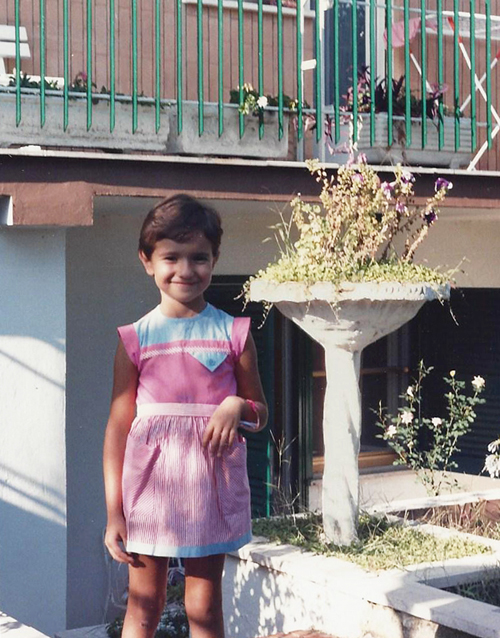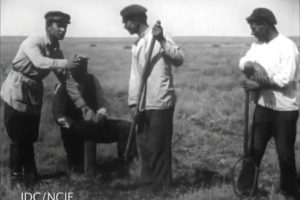
Scholar Researches Soviet Jewish Transmigrant Experience
Inga Veksler recently defended her dissertation at Rutgers University on the Soviet Jewish transmigrant experience: “’We Left Forever and Into the Unknown’: Soviet Jewish Experiences of Transit Migration.”
For Veksler, her dissertation topic is particularly resonant: her family was assisted by JDC in their emigration from the Soviet Union to the United States.
In the late 1980s, under glasnost, the number of Soviet Jews emigrating to the West soared. Thousands of Soviet Jews were essentially stranded in transit—“transmigrants”—in Rome and Vienna as they waited for the processing of their applications by the U.S. Immigration and Naturalization Service. In response, JDC provided basic care and maintenance services, including medical care, social services, housing assistance, and an array of educational, religious and cultural resources to thousands of transmigrants.
Veksler and 9 family members left Odessa in 1989. They spent six months in Italy, waiting for their immigration applications to the United States to be processed. Her family travelled by boat from Odessa to Vienna, and then embarked on an 18-hour train ride to Orte, a town outside of Rome. Individuals she interviewed in her research remember disembarking in Orte as “the worst time in the entire emigration process”—a stressful and chaotic scene. After leaving a note on a bulletin board in a refugee center, Veksler’s family found housing in a town near Ladispoli. She recalls her Italian neighbors as “laced with benevolence, [and] empathetic and kind.”
According to Veksler, most scholarship in migration highlights “displacement and the way it rearranges social worlds in a different way—tears worlds apart.” Her research, which focuses on individuals who immigrated to the United States, analyzes the indelible experience of transit migration and how these encounters left a lasting impact on people’s lives. She conducted interviews with over 50 individuals, primarily family and extended friends, in the New York metropolitan area and in Boston.
The primary interviewees were “heads of households”: adults who were between the ages of 25 and 50 during their emigration experiences. Veksler describes this generation as “defined by the fact of emigration.” To older individuals in their late 70s and 80s, their formative emigration experiences were evacuations that occurred during World War II, whereas younger generations’ experiences were dominated by the adjustment to a new country.
In her research, Veksler builds upon an insight of the cultural anthropologist Fran Markowitz regarding the relative lack of broad fraternal organizations among Soviet transmigrants. Veksler attributes this lack to the emphasis among Soviet Jews on personal networks rather than organized communal activities. Personally, she has “a familial, intimate recollection” of her own family gathering to commemorate their departure from Odessa.
Veksler notes that transmigrants had very little sense of the organizational and governmental roles in the processing of their applications and the services they received while in transit. They were also unaware of the rapidly evolving response on the part of relief organizations like JDC to meet the needs of these refugees. Veksler learned in her research in the JDC Archives that in 1989 alone, when Veksler and her family were in transit, JDC served over 66,000 Soviet transmigrants.
Thus, her research in the JDC Archives was “absolutely crucial” to learning about the Jewish communal organizations, such as JDC and HIAS, which provided services to this population in transit. Veksler notes, “The coordination required for this undertaking was immense.”



